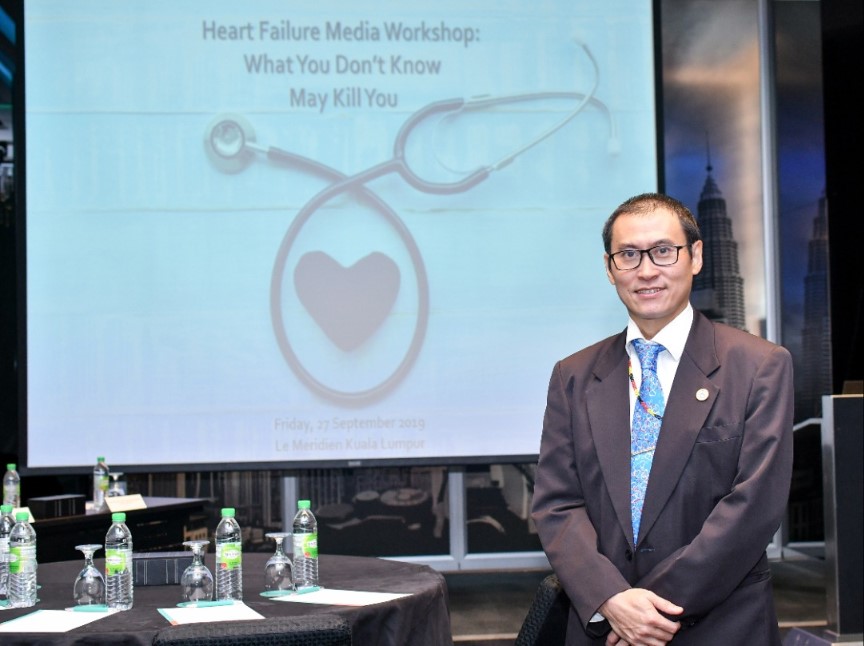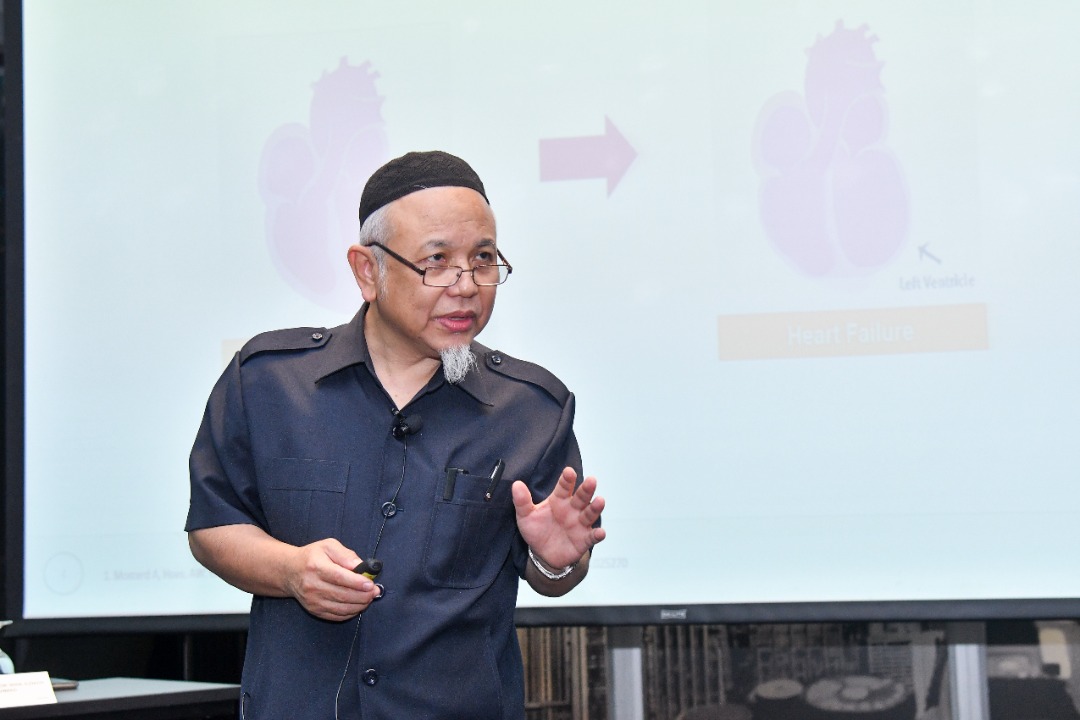KUALA LUMPUR, Oct 10 — Women have a higher probability of heart failure at old age because of other risk factors like diabetes and high blood pressure, a cardiologist said.
Universiti Malaya Medical Centre senior consultant cardiologist Dr Wan Azman Wan Ahmad countered misperception that heart attacks were a man’s illness, noting that prevalence of heart disease was similar between women and men.
“Women usually live longer than men,” Dr Wan Azman told a recent media workshop here organised with the support of pharmaceutical company Novartis Malaysia in collaboration with the National Heart Association of Malaysia (NHAM).
“So as women live longer, they also have more risk factors. They have diabetes, hypertension, so when they live longer, they get more risk factors. At the old age, women have more heart failure.
“So it’s not a disease of men. It’s an important disease of men and women.”
Asian heart failure patients, Dr Wan Azman noted, were strikingly younger at the average age of 60 compared to other nationalities, like 70 for Europeans and 75 for Americans. Asian heart failure patients also had a more severe form of the disease than Europeans.
The cardiologist also said heart failure was as debilitating as cancer, pointing out that women with breast and colorectal cancers, as well as men with prostate and bladder cancers, had higher five-year survival rates than heart failure.
Acute heart failure was linked to up to 50 per cent mortality after five years, as Dr Wan Azman said. “One in two die within five years.”
In Malaysia, heart failure costs 1.8 per cent of total health expenditure at RM785 million, Dr Wan Azman said, citing Clinical Practice Guidelines Malaysia 2019. The report also noted that heart failure was a common cause of hospitalisation and accounted for 6 to 10 per cent of all medical admissions, with death occurring in one out of 10 hospitalised patients.
Hospitalisation accounted for 74 per cent of the direct cost of heart failure in Malaysia, Dr Wan Azman said, according to 2017 research.
The average hospital stay for heart failure in Malaysia was 9.2 days, according to a 2016 study, said Dr Wan Azman. The average hospital stay length for acute heart failure in Southeast Asia and the United States, in comparison, was shorter at six and 4.2 days respectively, according to 2015 research.
Dr Wan Azman complained about the lack of updated Malaysian data on heart failure, saying: “We need to have a Malaysian heart failure registry, which we’ll conduct quite soon.”
The estimated prevalence of heart failure in Malaysia is 1 to 2 per cent of the population, or 300,000 to 600,000 people, with 10 per cent of them aged above 65, according to the cardiologist, citing Clinical Practice Guidelines Malaysia 2014. An estimated 300,000 hospital admissions in Malaysia were due to heart failure, he said, according to 2013 data, with a quarter rehospitalised within 30 days.
Hospitalisation was the key cost driver for heart failure, Dr Wan Azman said, citing global data, comprising 70 per cent of the cost of the disease, while 10 per cent of the cost of heart failure came from drugs. About 2 per cent of the total health care budget in many countries is spent on heart failure treatment.
Heart Failure Patients Ignoring Their Condition

Dr Liew Houng Bang, head of cardiology and clinical research centre at Hospital Queen Elizabeth II in Kota Kinabalu, Sabah, said the average age of heart failure in Malaysia was in the 50s.
He said a healthy diet comprised a quarter of carbs, a quarter of protein, and half a plate of vegetables and fruits, but Malaysians usually ate mostly carbs.
“We are eating our way into diseases.”
Dr Liew Houng Bang, cardiologist
“If you’re not practicing the quarter-quarter plate rule, you’re at risk of having heart problems,” Dr Liew told the workshop.
The cardiologist also complained that many heart failure patients did not take their condition seriously.
“It’s not one single tablet you pop. It’s a lifelong commitment to change lifestyle. People need to take their disease seriously. They need to do their part,” Dr Liew said. “Doctors have a lot of medicines, but if people don’t take them, no point if have wonderful new inventions.”
The cardiologist called for greater community-based care and trained family physicians, saying heart failure patients can’t stay in hospital forever.
“When I trained in the UK 20 over years, I used to follow the GP to visit people at home to see how they’re doing. The GP will have a list of people in their area. In NHS, I know who has heart failure, I know who is red, yellow, green, the sickest one I make a phone call twice a week or I pop in to see them. We haven’t had this set up yet. In time, we’d like to see that,” he said.
Dr Liew also said palliative care in Malaysia needs to go beyond cancer, saying: “There’s a huge need of palliative care for non-cancer, including chronic diseases, kidney failure, heart failure, lung failure patients, brain, stroke, dementia.”
Novartis Malaysia said leading cardiology experts and the NHAM have recently released the 4th Edition of the Clinical Practice Guidelines (CPG) Management of Heart Failure 2019. The CPG provides a comprehensive and standardised guide for physicians across Malaysia to treat heart failure patients.
“Some notable additions to the CPG include a specialised treatment approach for heart failure patients who fall into special groups such as those with diabetes, pregnant mothers and adult congenital heart disease patients.
“The new edition also sees the inclusion of more first-line treatment options, which can help to improve the overall outcomes for patients with chronic heart failure,” said the pharmaceutical company.








